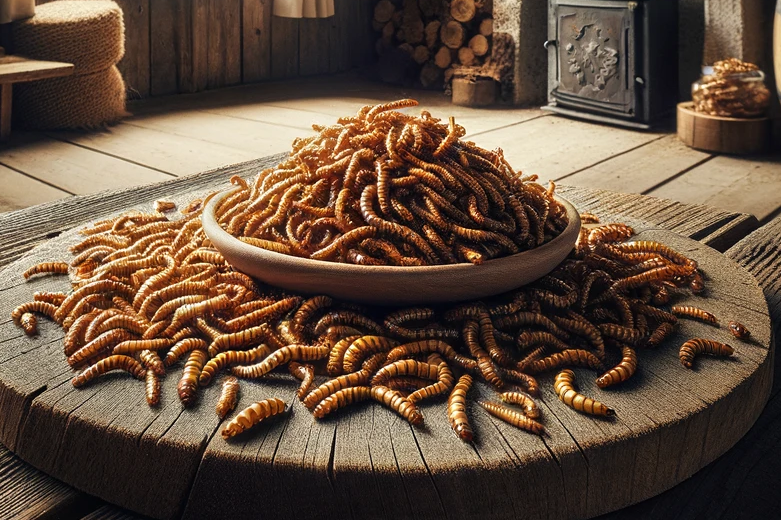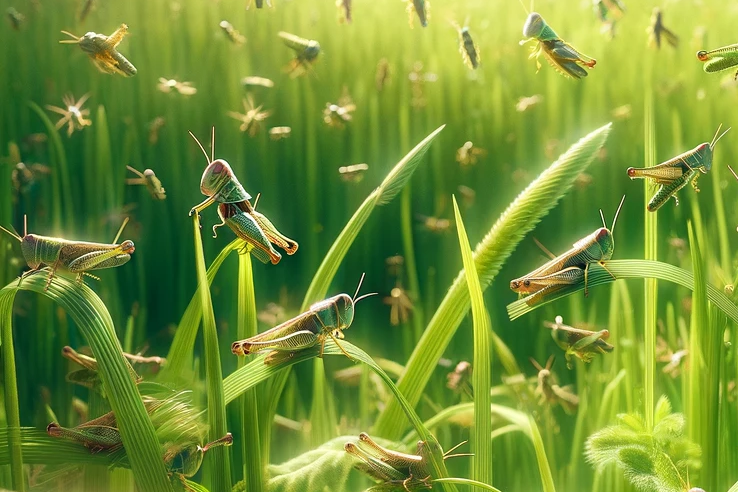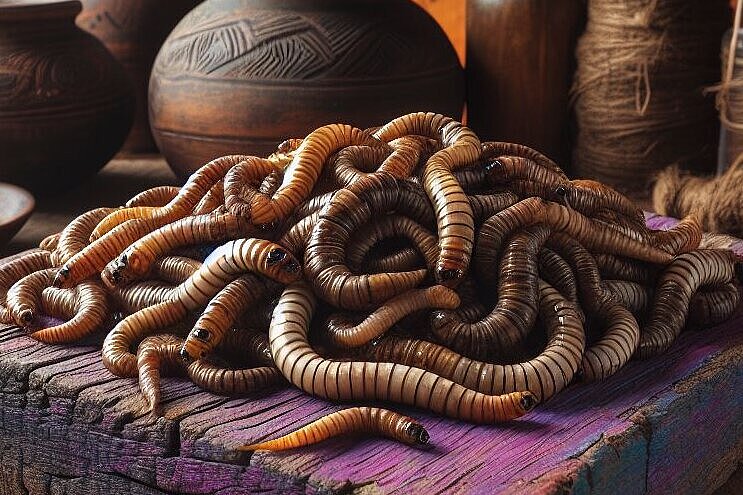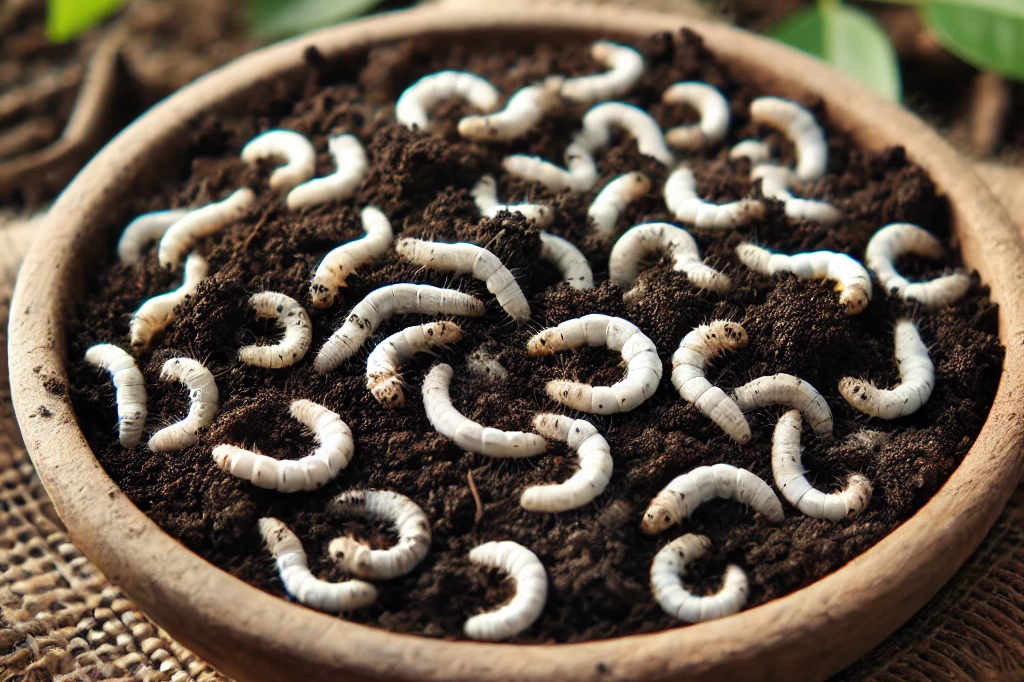Dried crickets

The nutrition of our dogs is a constantly evolving field in which traditional ingredients are constantly being supplemented or replaced by innovative alternatives. One such innovation that has gained popularity in recent years is dried crickets. But what makes dried crickets a potential superfood for dogs, and what might be the limitations of this novel protein source? In this in-depth article, we take a closer look at dried crickets and assess their pros and cons as an ingredient in dog food.
What are dried crickets?
Dried crickets are nothing more than crickets that have undergone a drying process to extend their shelf life. The drying process removes the water content from the crickets, making them lighter, longer lasting and easier to store. This process also preserves the crickets' nutrients, making them a nutrient-rich source of protein.
Benefits of dried crickets for dogs
High protein and nutrient content
Dried crickets are an excellent source of protein, containing all the essential amino acids that are important for your dog's health. They are also rich in vitamins such as B12 and minerals such as iron, zinc and magnesium. This nutrient density not only supports muscle health and development, but also your dog's immune system and overall vitality.
Sustainability
Compared to conventional protein sources such as beef or chicken, crickets have a much smaller ecological footprint. They require less land, water and feed to produce the same amount of protein. Choosing dried crickets as a protein source for dog food can therefore be a more environmentally friendly option.
Allergy friendly
For dogs with allergies to conventional protein sources, dried crickets can be a hypoallergenic alternative. As they are still relatively new to dog food, dogs are less likely to have already developed sensitivities or allergies to them.
Disadvantages and risks
Acceptance
Not all dogs like the taste or texture of dried crickets. Acceptance can vary and some dogs may be reluctant to accept this novel protein source. It may take a few trials before you find out if your dog likes dried crickets.
Availability and price
As dried crickets are not yet as widely available as traditional protein sources, they can be harder to find. They can also be more expensive due to production costs, although their sustainability and nutrient density may justify this price.
Potential health risks
As with any new ingredient in your dog's diet, it's important to be aware of potential health risks. Although rare, some dogs may be sensitive to cricket protein, especially if they are already prone to food allergies or intolerances. A gradual introduction and monitoring your dog for any negative reactions is advisable.
A promising supplement with caution
Dried crickets offer a nutritious, sustainable and potentially hypoallergenic protein source for dogs that could be an innovative addition to traditional dog foods. While their benefits are compelling, it's important to consider your dog's individual acceptance and potential health concerns. As with any dietary change, you should approach the introduction of dried crickets into your dog's diet slowly and seek expert advice if necessary. With the right approach, dried crickets could be an enriching addition to your four-legged friend's diet.
If you notice any signs of hypersensitivity or poisoning in your dog, you should see your vet immediately. We are not a substitute for a vet, but we try to be as accurate as possible. Every dog reacts differently and we recommend you get a second opinion or consult your vet if in doubt.
Stay healthy and take good care of your four-legged friend!😊
Similar to Dried crickets
Dried mealworms are the larvae of the mealworm beetle (Tenebrio molitor) that have been dried to extend their shelf life. This process not only preserves the nutrients, but also makes mealworms a...
Grasshoppers belong to the order Orthoptera and are known for their ability to travel large distances in a short time, often in swarms that can cause significant agricultural damage. However, in...
Buffalo worms are the larvae of the buffalo beetle (Alphitobius diaperinus) and are prized for their high protein quality and sustainable breeding process. They are part of entomophagy, the...
The silkworm moth (Bombyx mori) is a domesticated species of butterfly that is bred primarily for the production of silk. The larvae of the silkworm moth, often referred to as silkworms, feed...



